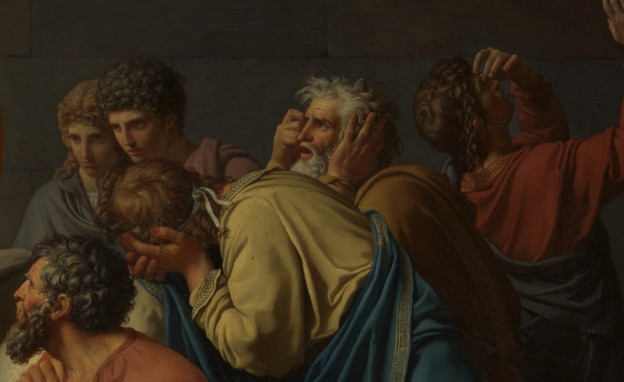How often in life do we reject the help or advice of someone until it is past time that we need it? As a father, it seems like my children do not listen to my advice until it is too late. Then they want my help! If I look at my own life, it’s the same story.
If it is true of our everyday life, it is just as true of people towards others, and people towards God. In this passage, Israel negotiated with a previously rejected saviour to save them from the Ammonites. This negotiation mirrored that of Israel and God, and reminds us of our own saviour, who was despised and rejected by men.
After Israel binged on idolatry with the fake gods of the surrounding nations, God sent the Ammonites and Philistines upon them to discipline them for their sin (10:6-9). Israel cried out to God, who challenged their rainy day repentance, but ultimately acted out of his love for his people to set in motion the Judges who would save them from Ammon and Philistia (10:10-16).
While Israel repented of their sins, the Ammonites were still about to attack (v.17). The army of Israel gathered at Mizpah, but there was no general to lead them (v.18). Who could step into the leadership vacuum?
There was an obvious answer, but an obvious problem. The obvious answer was a man named Jephthah, who was “a mighty warrior” (v.1). But there was an obvious problem; “he was the son of a prostitute” (v.1). Jephthah was born from an affair with a prostitute, but was driven off by his father’s legitimate sons who did not want to share the inheritance with their half-brother (v.2). Jephthah went to Tob (“good”) and gathered a band of thugs (v.3).
Now the Ammonites had come (v.4), bringing distress with them. At this point, the elders of Gilead came bowing and scraping in repentance to Jephthah to lead them out of their bind (vv.5-6).
Jephthah was no fool. When the elders came to make him general, he answered “Did you not hate me and drive me out of my father’s house? Why have you come to me now when you are in distress?” (v.7). Rainy day repentance is suspicious in its sincerity, at best.
The elders at least acknowledged that circumstances had changed, and so too their attitude towards Jephthah (v.8). Before he was worthless, now he was worth every penny to deliver them.
Jephthah could have left the elders to lie in the bed they made, but instead he agreed to lead, with conditions (v.9). To “bring him home” was to restore Jephthah to his rightful inheritance among God’s people. As one who trusted God, who believed it was up to God to hand Ammon over to him (v.9), this was his rightful place.
The elders of Gilead agreed to Jephthah’s terms, and swore an oath to fulfil it (v.10), so Jephthah went back with them and was made Israel’s leader at Mizpah (v.11), where later Saul would become king.
There are multiple similarities between the way Israel treated Jephthah (vv.1-11), and how they treated God (10:6-16). When times were good, Israel wanted nothing of either God or Jephthah, and removed them from their presence. Neither had done anything to deserve this treatment; Jephthah is not responsible for his parents’ acts, and God is always good.
Then, when bad times came, specifically here the Ammonites, suddenly God and Jephthah were back in vogue. Israel repented of their wrongs to God (10:10) and Jephthah (vv.5-6), but both God and Jephthah were weary of their change in attitude (10:11-14, 11:7). Yet Israel appealed to both (10:15-16; 11:8) and both God and Jephthah relented and moved to help Israel (10:16; 11:9-11).
Yet there is also a sense in which Jephthah and Israel are similar, too. Jephthah was cut off from his inheritance, and sent away. He did not control what ought to have been his by right of grant from his father. He wanted back that which he had lost to his brothers, and the elders of Israel who let it happen.
Israel too wanted back their inheritance. While God had given it to them, their sinful acts had caused God to send foreign nations to discipline them, and taken it away from them. They wanted the Ammonites gone, and the fruits of the land, their inheritance from their Heavenly Father, back.
In both these senses there is a picture of Jesus, our saviour. The Son of God born a man to identify with us, and gain back for us the inheritance we have lost because of our sin. Though he, unlike Jephthah, was sinless.
Jesus also was despised and rejected by men (Isaiah 53:3). But God chose what man rejected. He chose Jesus to save us and defeat our true enemies, sin and death.
God did this despite our sinfulness. But unlike Jephthah, Jesus’ salvation is perfect and complete.

